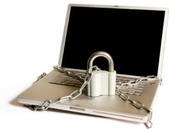
The world is smaller than ever and this means that we're in contact with more people every day. Whether that is on Facebook or interacting on message boards and various online communities, we are more exposed than ever before. Cyber crime and identity theft are very real threats but there are simple things you can do to help keep yourself safe. Some are programs and applications that you can get, others are simple behaviours and habits that will keep you safe.
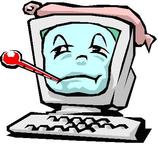
Get an Anti-virus program and Firewall
Make sure you have an anti-virus program and a firewall installed on your system. There are a lot of very good options out there that are free and easily installed and maintained. Whether it's Windows Defender, Avast or another program, they will help to keep your system and your information safe. It is especially important to get these programs before you get a virus or malware as it is easier to prevent an infection than to get rid of it.
Make sure you have an anti-virus program and a firewall installed on your system. There are a lot of very good options out there that are free and easily installed and maintained. Whether it's Windows Defender, Avast or another program, they will help to keep your system and your information safe. It is especially important to get these programs before you get a virus or malware as it is easier to prevent an infection than to get rid of it.

Keep your software up to date
Now that you have an anti-virus and a firewall program, you need to keep them up to date. It is also very important to install Windows or OSX updates as they're available along with things like Java and Flash. The reason these are so important is the updates are typically done to close security holes in the programs. If there is a security hole in your operating system (Windows or OSX), your entire system may be vulnerable. If programs like Flash or Java have holes, they can be exploited to install malware and the like.
Now that you have an anti-virus and a firewall program, you need to keep them up to date. It is also very important to install Windows or OSX updates as they're available along with things like Java and Flash. The reason these are so important is the updates are typically done to close security holes in the programs. If there is a security hole in your operating system (Windows or OSX), your entire system may be vulnerable. If programs like Flash or Java have holes, they can be exploited to install malware and the like.
Use effective passwords
An effective password can be tricky to understand. Most think an effective password has to be a difficult to remember jumble of letters, numbers and symbols. While a password like X314Jev#2 is more secure than "password," it can be really difficult to remember. Longer passwords that aren't easy to guess are the best choice. Instead of using a long series of various characters, try using a passphrase instead of a password. For example "MydogFredisagoodboy!" is an incredibly secure password and relatively easy to remember. If you do have to go shorter, don't use obvious things like pet or family names or words like "password" or your name. Try for random words with a mix of capital and lower case letters and a few numbers and symbols if you have to use a short password.
An effective password can be tricky to understand. Most think an effective password has to be a difficult to remember jumble of letters, numbers and symbols. While a password like X314Jev#2 is more secure than "password," it can be really difficult to remember. Longer passwords that aren't easy to guess are the best choice. Instead of using a long series of various characters, try using a passphrase instead of a password. For example "MydogFredisagoodboy!" is an incredibly secure password and relatively easy to remember. If you do have to go shorter, don't use obvious things like pet or family names or words like "password" or your name. Try for random words with a mix of capital and lower case letters and a few numbers and symbols if you have to use a short password.
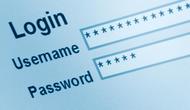
Use different passwords
You should use a different password for each of your accounts. That way if your email, for example, gets hacked, they shouldn't have your passwords to other sites as typically hackers will try to match the same email address and passwords when they manage to get them from one site on other sites. This does mean you'll have a lot of passwords, but you can use programs like Last Pass (https://lastpass.com/) to keep track of them. If you're not comfortable with programs keeping track, you can write them into a small notebook or a day planner.
You should use a different password for each of your accounts. That way if your email, for example, gets hacked, they shouldn't have your passwords to other sites as typically hackers will try to match the same email address and passwords when they manage to get them from one site on other sites. This does mean you'll have a lot of passwords, but you can use programs like Last Pass (https://lastpass.com/) to keep track of them. If you're not comfortable with programs keeping track, you can write them into a small notebook or a day planner.
Be wary of links
Most of us know by this point that the prince of Africa doesn't really need help smuggling fifty million US dollars out of the country and those emails are scams. A common practice now is what is termed as "phishing." You will receive emails from various sources, might seem like your bank or companies like PayPal or other seemingly legitimate companies. The email can look very convincing and they will ask you, for various reasons, to open a link and log in to your account. If you get an email like this, your best course of action is to open a new browser window and go directly to the site in question and log in there. Be very careful clicking on any links.
Most of us know by this point that the prince of Africa doesn't really need help smuggling fifty million US dollars out of the country and those emails are scams. A common practice now is what is termed as "phishing." You will receive emails from various sources, might seem like your bank or companies like PayPal or other seemingly legitimate companies. The email can look very convincing and they will ask you, for various reasons, to open a link and log in to your account. If you get an email like this, your best course of action is to open a new browser window and go directly to the site in question and log in there. Be very careful clicking on any links.
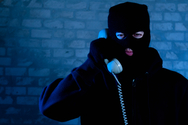
Do not trust those calling on the phone
One of the more common scams lately that gets a lot of people is that someone will call, claiming to be from Microsoft, advising that there is a problem with your computer. They will then instruct you to install a remote application that gives them control of your computer. Never give out a password or any personal information what so ever over the phone. Companies like Microsoft and Google will never call you for any reason. Make sure you know who you are talking to before giving out any personal information.
One of the more common scams lately that gets a lot of people is that someone will call, claiming to be from Microsoft, advising that there is a problem with your computer. They will then instruct you to install a remote application that gives them control of your computer. Never give out a password or any personal information what so ever over the phone. Companies like Microsoft and Google will never call you for any reason. Make sure you know who you are talking to before giving out any personal information.
Following these general tips will help to keep you safe as you navigate the virtual world. The dangers out there are very real but with these steps you should be able to steer clear of trouble. A few last bits of advice: if you use a free webmail account, Gmail tends to be much more secure than Hotmail. Make sure that the web address shows "Https" instead of "Http" when you are doing financial transactions (in fact, enabling Https all the time isn't a bad idea). And finally, if you are unsure about a site or a link, your best bet is to avoid visiting the site or clicking on the link.



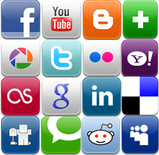
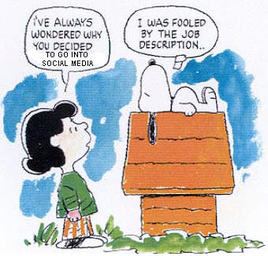
 RSS Feed
RSS Feed
